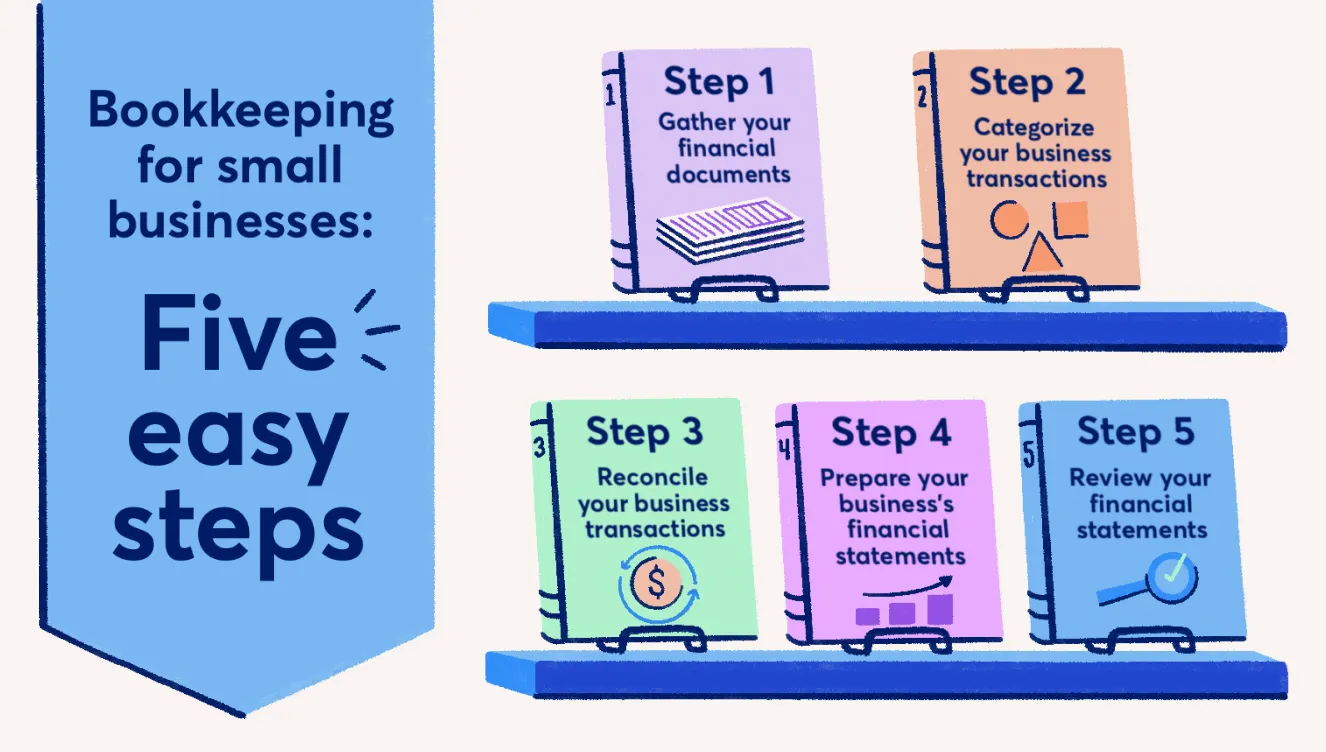
Bookkeeping Tips for Keeping Small Business Finances Organized
Keeping your small business finances in order is much like keeping a garden thriving – it requires regular attention, a bit of know-how, and the right tools to keep everything flourishing. If you let things slide, you might find yourself lost in a jungle of numbers, and invoices that are hard to navigate. That’s why adopting smart bookkeeping strategies is essential to the health and growth of your small business.
Get the Right Tools for the Job
First things first, you need the proper tools to keep your finances organized. In the digital age, this means finding the right accounting software that fits your business needs. Options like QuickBooks, FreshBooks, or Xero offer user-friendly solutions that cater to non-accountants, making it easier to track your cash flow and manage invoices. With digital tools, most of the heavy lifting is done for you, like calculations and categorizing expenses, so you can focus on what you do best – running your business.
Keep Personal and Business Accounts Separate
Mixing business with pleasure is a big no-no when it comes to your finances. Always keep your personal and business accounts separate. This will save you a tremendous amount of time and confusion when you’re trying to pinpoint your business’s actual financial health. Open a business bank account and credit card, and use these exclusively for business transactions. This separation will also stand you in good stead come tax season.
Record Every Transaction
Make it a point to record every transaction, no matter how small. Whether it’s your morning coffee with a potential client or a new pack of pens for the office, keep the receipts and note the expense. In the long run, these small transactions add up. Furthermore, by keeping detailed records, you’ll be able to see where your money is going and make informed budgeting decisions.
Categorize Your Expenses
Speaking of visibility, categorizing your expenses is like having a map of where your money travels. Instead of a pile of receipts and numbers, you’ll see clearly defined categories like Utilities, Marketing, and Travel. These lines in your financial map will show you which areas are resource-heavy and where you might afford some cutbacks. Most accounting software comes with customizable categories to match the unique needs of your business.
Stay on Top of Invoices
Unpaid invoices are like seeds in a pocket – they don’t do you any good unless they’re planted and well-tended. Make sure you have a system in place for tracking invoices you’ve sent out and the payments you’re due to receive. Use your accounting software to set up reminders for due and overdue payments, and don’t hesitate to follow up with clients who are taking too long to settle their bills. Cash flow is the lifeblood of your business, you need to keep it flowing.
Monitor Your Inventory
If your business carries inventory, keeping an accurate count is crucial. Just like knowing exactly what seeds you have and how your plants are growing, you need precise records of your product levels. This will help avoid overstocking or running out of your best-sellers at critical moments. Fortunately, there are plenty of inventory management tools that can integrate with your accounting system, keeping your stock in check.
Plan for Major Expenses
Every business will have seasons, times when things thrive and others that are leaner. Certain major expenses like equipment purchases or renovations are foreseeable. Plan and save for these big-ticket items so they won’t disrupt your cash flow when the time comes. Think of it as preparing your garden for a changing season: just as you would protect plants from frost, insulate your business from financial stress with foresight and planning.
Reconcile Regularly
In the world of bookkeeping, reconciliation means ensuring that your records match what’s actually in your bank account. Errors can sprout like weeds, and the longer they’re left unattended, the bigger the mess they can make. By reconciling monthly, you nip these issues in the bud, keeping your bookkeeping garden trim and healthy. This process also helps to detect fraud or discrepancies before they grow out of control.
Keep Tax Deadlines in Mind
Taxes are everyone’s least favorite season, but there’s no avoiding them. Keep clear records of all taxable transactions and set aside a percentage of your income for the taxman regularly. Knowing the tax deadlines and preparing for them will prevent a scramble when they roll around. It’s like being aware of the frost dates in your gardening calendar – if you’re prepared, you won’t get caught out in the cold.
Hire a Professional When Needed
Sometimes, even the greenest thumbed gardener needs a little help. Similarly, you may reach a point where it’s worth hiring a professional bookkeeper or accountant. They can provide expertise that will save time, help avoid costly mistakes, and often find savings you might have missed. Even if you don’t hire someone full-time, a seasonal check-up by a professional can keep your finances in tip-top shape.
Regularly Review Your Financial Health

Finally, take the time to regularly review the financial health of your business. Set aside an hour each week to go over your books, look at cash flow, and check on the progress toward your financial goals. Consider this your weekly garden walk-through, assessing the health of your plants and adjusting care as needed.
In conclusion, maintaining an organized financial garden requires diligence, the right tools, and a proactive approach. By implementing these bookkeeping tips for your small business, you’ll ensure that your finances are in bloom year-round, supporting the growth and success of your enterprise. Remember, a little bit of regular maintenance goes a long way towards cultivating a thriving business.